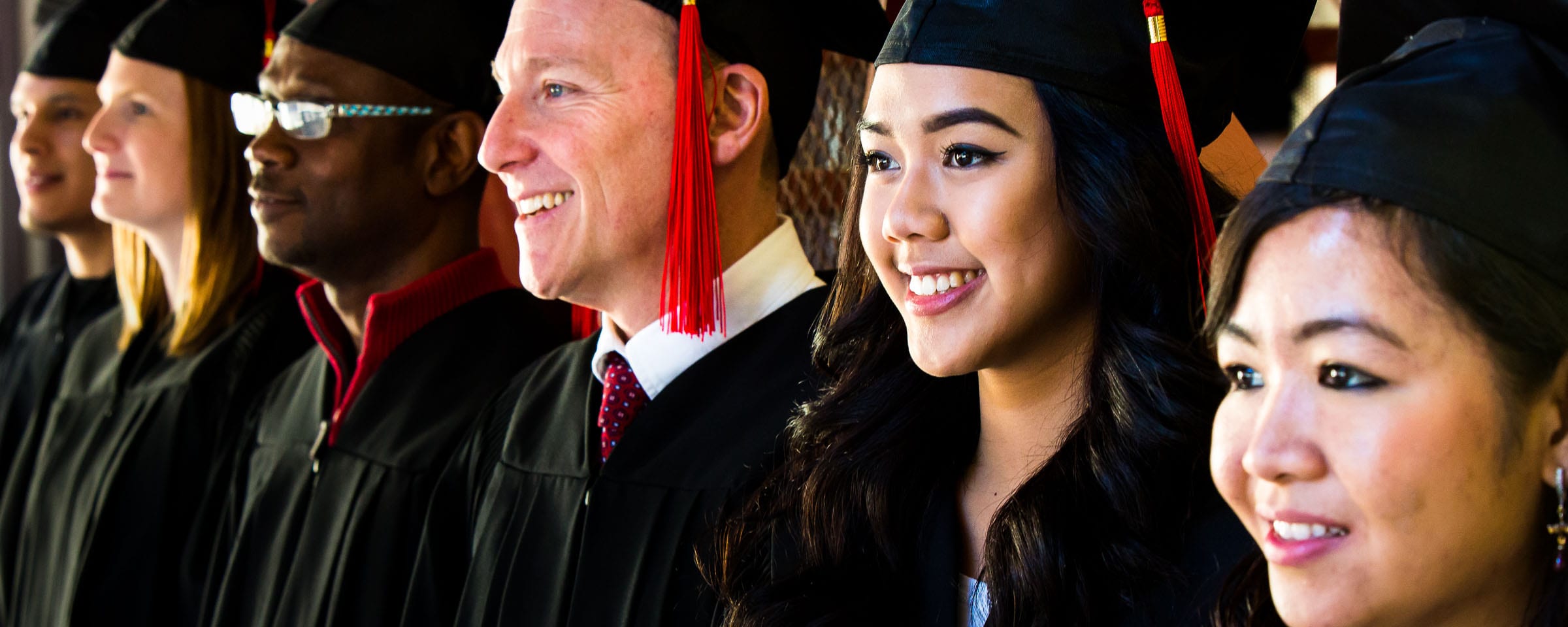Disability and Community Support grad enhances lives of St.Amant residents
 What makes great leadership? According to 2013 Disability and Community Support grad Audrey Dennis, it’s not just about your ideas — it’s also about the ideas of those around you.
What makes great leadership? According to 2013 Disability and Community Support grad Audrey Dennis, it’s not just about your ideas — it’s also about the ideas of those around you.
“As a good leader, you need to recognize that your staff are the people you need to be consulting when you’re making decisions, because they’re the ones who work closest with the residents,” says Dennis, 44. “You have to value your staff, and put aside your own feelings.”
That philosophy is helping Dennis — who holds the apt title of team leader — introduce new initiatives for her residents and staff at St.Amant, a comprehensive resource and home for Manitobans with developmental disabilities.
Originally from Kingston, Jamaica, Dennis moved to Toronto when she was four, and later came to Winnipeg with her husband in 1999. Never afraid to try something new, she spent much of her early life pursuing a wide range of education and careers — from law enforcement to esthetics and electrolysis — before finding her calling as a support worker at St.Amant in 2005.
“The opportunity to quantify your work is greater in the [human service] field,” she says. “I feel I can connect with people in my care. I not only share the not-so-nice times in their lives — I get to experience their life journeys, successes, milestones, and the joyous times with them.”
With her career choice clear, Dennis next wanted to focus her education. In 2008, she signed up for Red River College’s Disability and Community Support program — a task she handled while still working full time. In addition to formal developmental planning skills, the program taught Dennis crucial values for disability support — including the need for patience, and to set smaller goals for long-term success.
“I learned [at RRC] to focus on what the individual wants to achieve, and not what you think they should achieve,” says Dennis, who now oversees staffing and resident programming within her team at St.Amant. “You celebrate simple milestones — a person might not have learned how to complete the laundry by themselves, but they learned how to at least put the laundry in the bin. If they achieve one part of that goal, then that’s something to be celebrated.”
The program also brought out qualities in Dennis she never thought she had — most notably her artistry, and how to teach people with developmental disabilities how to creatively express their own feelings through a form of scrapbooking called “life books.”
“Life books are one way a resident can share their accomplishments, likes, dislikes, and pieces of their history with staff. It can be therapeutic for the residents to spend personal time with staff to create the books by taking pictures, and directing the project verbally, or sometimes non-verbally.”
Having introduced life books to her staff and residents at St.Amant, Dennis is now finding they have more uses than she originally thought.
“[Life books] are also a way of training new staff. When staff and others look through the books, they gain intimate insight into the person’s life.”
Passing knowledge on to her staff is just one way Dennis demonstrates leadership. She’s also a leader at home — as a mother of five children who’ve been the motivation behind everything she’s accomplished.
“I want to set a good example,” she says, noting she’s encouraged at least one of her children to apply to RRC. “I want [my children] to go to school — to college and university. That is one of the biggest things for me.”
With plans for more education for herself already in place, it’s an example Dennis has no desire to stop setting.
Learn more about RRC’s Disability and Community Support program.
